Have you ever thought about the power of words, or choosing one word specifically on which to focus? It can be an incredible motivator. Having your students choose their one word to focus on for the year can be a game changer in their lives and your classroom.
Let me set the scene. It is January 1st of a brand new year. Your students will be returning to school in a few days. You want to maximize this new year, fresh start vibe. You want to reestablish norms and expectations AND set your students up for personal and academic growth this year.
Hands down, the best way to do this is to make some connections by creating a culturally responsive, culture centered, student thriving kind of classroom.
The start of a new year is a great marker for focused reflection, goal setting, and forward planning.
In education, we have at least two clear opportunities to take advantage of the “new year” vibe. In August or September the school year begins in the United States. In January, the new calendar year begins for most countries around the world.
Also, depending on the grade level you teach, students begin new academic class rotations half way through the school year. A “new beginning”.
One Word. One Focus. One Year
So, how can we as educators use the energy of these new year seasons to learn more about our students culturally? How can we use what we learn to establish or reestablish norms, expectations, and rules in the classroom? How can we set our students up for personal and academic success?
Well, two thoughts –
- Focusing on a new year, new you, resolutions type of deal is not necessarily beneficial. According to a YouGov Survey, about a third of the people who set new year’s resolutions kept all of them. About a half of the people who set new year’s resolutions kept some of them and 16% didn’t keep any. These numbers are based on a fairly low sample size because, according to YouGov, people are more or less likely to actually set new year’s resolutions based on their age. So, a millennial may be more likely to set a resolution than a Gen Z’er. These two types of people are setting different types of resolutions.
However, equipping students with skills to reflect on their journey, both personally and academically can be beneficial. Showing them how to sort through the challenges of the previous collective moments that made up a year and use what they learned to inform their choices moving forward is wildly important.
2. Using a strategy like choosing a focus word for the year can help you and your students be more successful. Choosing one word is rooted in reflection. Reflecting on your collective moments makes you more aware of your culture and the impact your culture has had on your teaching practices. Then you can shift and improve or amplify those practices.
Having your students reflect on their collective moments can help them learn a lot about themselves culturally and the impact their culture has had on their choices, successes, and challenges. As they reflect, you get to learn more about them culturally. This in turn allows for a better understanding of learning needs, expectations, norms, etc. It can help you set a baseline for expectations and norms in the classroom. Coming up with a focus word or phrase is powerful because it is grounded in intentional reflection for forward momentum. Completing a one word project for students is marked for success.
The Power of Choosing One Word for Personal and Academic Success
Let’s continue answering the three aforementioned questions. To establish beneficial norms, expectations, and classroom rules you need to know about your students culturally. In order to set your students up for personal and academic success you need to know about them culturally. This means creating a culture-centered/culturally responsive classroom where three necessary and beneficial practices are always at work – reflection, learning, and implementation. One reason why having your students choose their one word is so powerful is because it allows you and your students to do all three. This is the key to a truly student centered classroom with a personalized learning path for each student.
Having students participate in the one word/phrase exercise is perfect. Think about it, as your students are reflecting on what word they will choose they have to sort through several other words deciding whether the word resonates with them, their purpose, their goals, their aura.
In doing so, they become aware of certain things, like “who am I that I connect with this word over another?” Like thinking of other words that might have been a focus whether they realized it or not and then seeing what worked and what didn’t work, as well as thinking through why a strategy worked or didn’t work.
Then, your students need to decide whether to accept or reject this knowledge. They can work through that by formulating new ideas, crushing old ideas, acknowledging and processing feelings.
Finally, your students will decide what action to take moving forward. Do they need to learn new strategies, concepts, or go deeper in understanding previously learned concepts? Do they need help? What resources will enable them to be successful this time around?
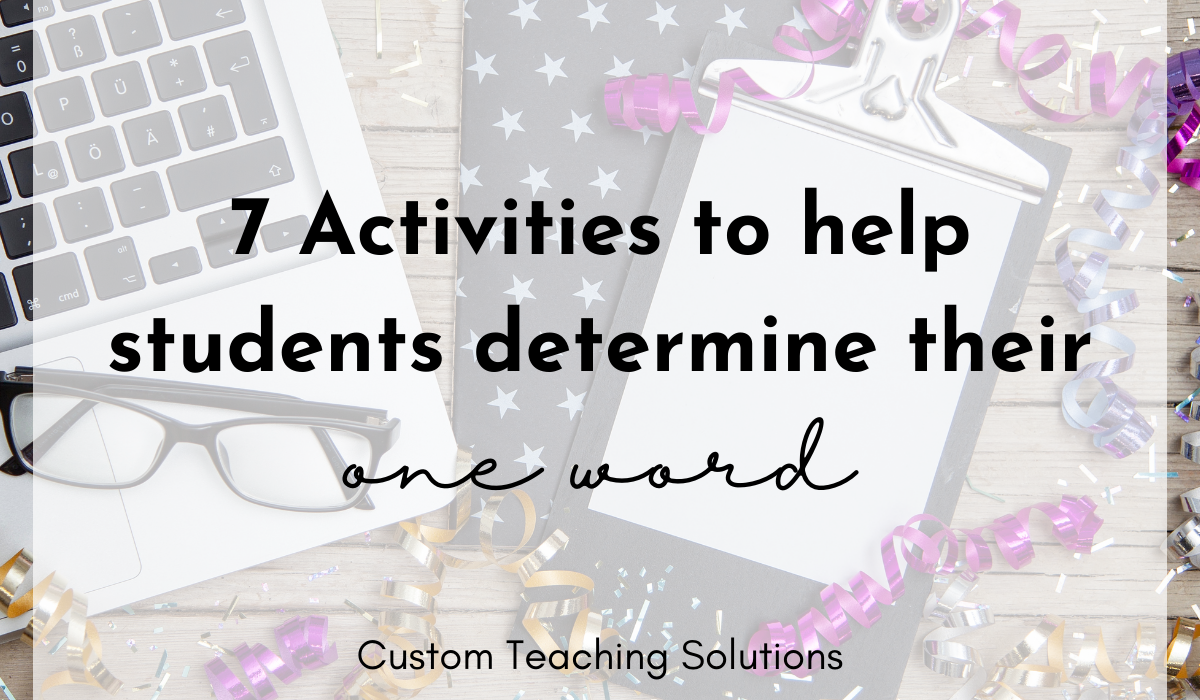
7 Activities to help your students choose their word or phrase for the year
Here are 7 Activities to help your students choose their word or phrase for the year –
Adjectives Around the Room – Write multiple adjectives on index cards and tape them to the tops of desks, on the walls, or on the backs of chairs. Have students sit or stand near the adjective that resonates with them. While your students are near the adjective, have them fill out the accompanying sheet. I recommend having students switch at least 3 times.
Picture Inspiration Around the Room – Print multiple pictures – landscapes, statues, people completing activities – place them around the classroom on walls and desktops. Have students complete a gallery walk answering the questions and making observations on an accompanying sheet. Have students switch at least 3 times.
Poetry for Inspiration – Have students read several poems individually or in small groups. Students discuss the meaning of each and gather inspiration. Students may choose a word or phrase from the poem.
Famous Quotes– Choose several quotes to have students read and reflect on. You may want to include some information about the person who delivered the quote. Your students may connect with the words or the person.
A Musical Journey toward Inspiration – Have students write the names of songs on a sheet of paper. Preview and then play through the songs in no particular order. You may want to print out lyrics. Allow students to sit with the melody and the words. How does it resonate with them?
Emotions – Put several positive and negative emotions around the room. Have students move to two different positive and one negative emotions. Have them describe why they chose this emotion. Do they want to embrace this or reject it? Do they want to feel it more or less? **This activity could trigger trauma. This may not be appropriate for every class, or any class.**
A Little Chit Chat – This is an activity that can be completed in conjunction with one of the others. Some of your students may be verbal processors. Giving them time to debrief with one – three other students may help in providing clarity.
Gain Insight into Who Your Students are Culturally
Watching your students work through these types of activities will give you insight into who they are, what they value, and who they hope to become. It will allow you to craft your lessons around helping them become their future selves successfully.
Once your students have selected a word, have them write it down or type it, make it pretty. Have them record the dictionary definition and their connotation of the word. Have them jot down their expectations for how a focus on this word will play out for the coming year. What do they want? Why? What has impacted their thinking and choice.
Finally, do a One word check in throughout the semester. This should not be a one and done activity. It is important to fully teach them the skills of reflecting, goal setting, focusing, and implementing.
If you want to use my PowerPoint lesson slides, student activity sheets, and templates, grab my print and go resource, Check out the one word project for students HERE.
Cheers, my friend and Happy New Year!

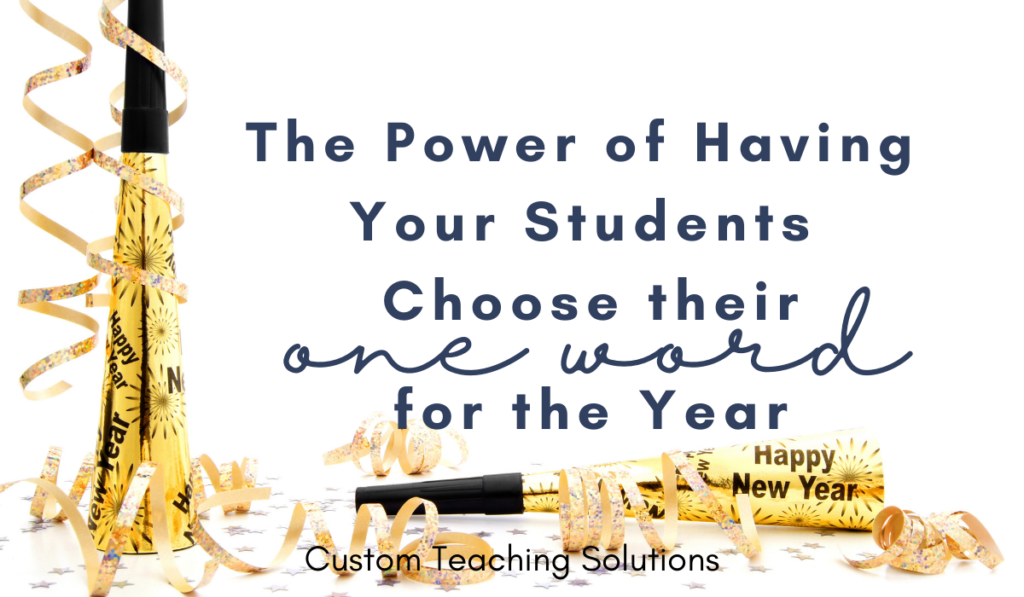
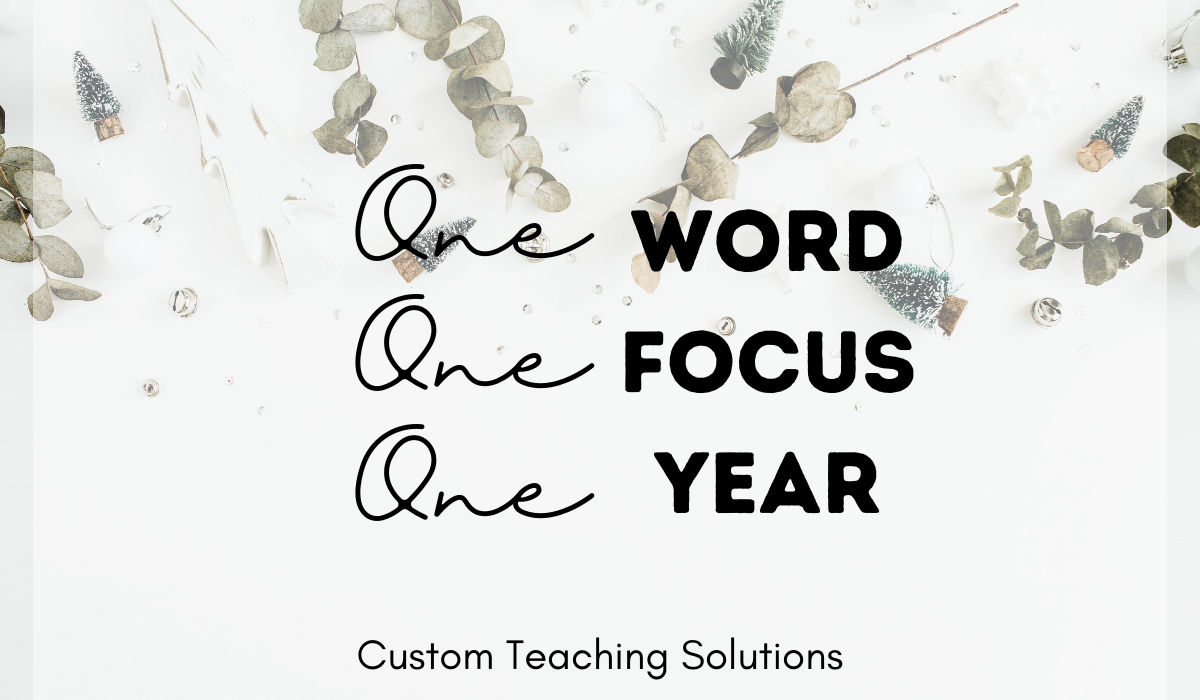
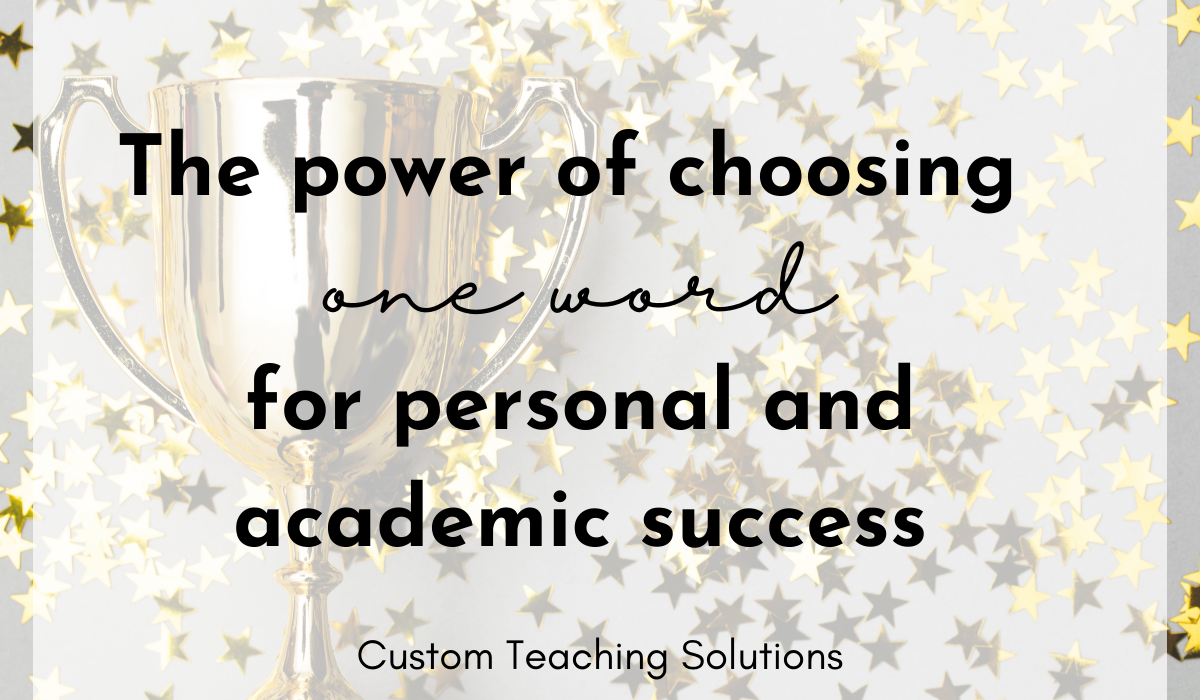
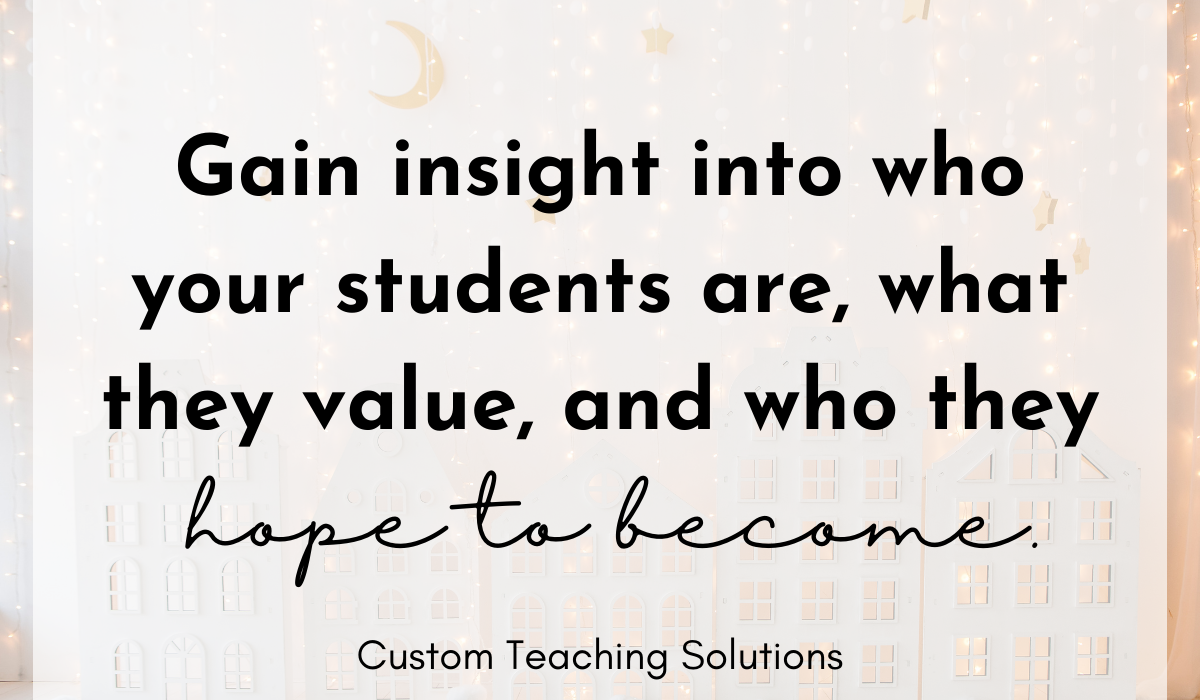
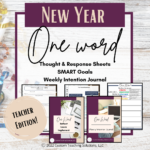
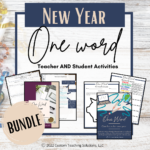
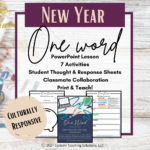


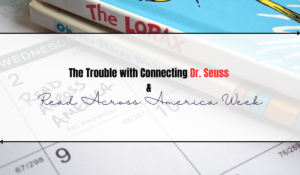
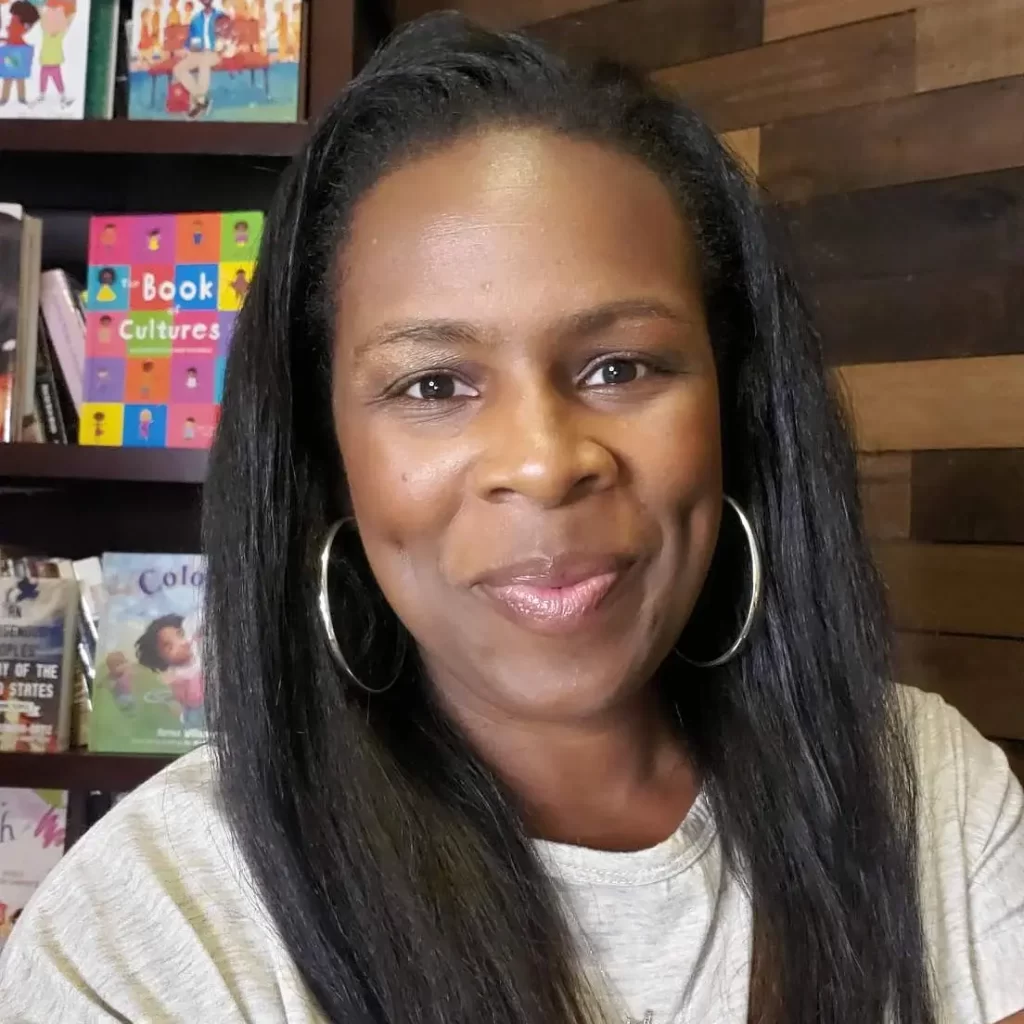
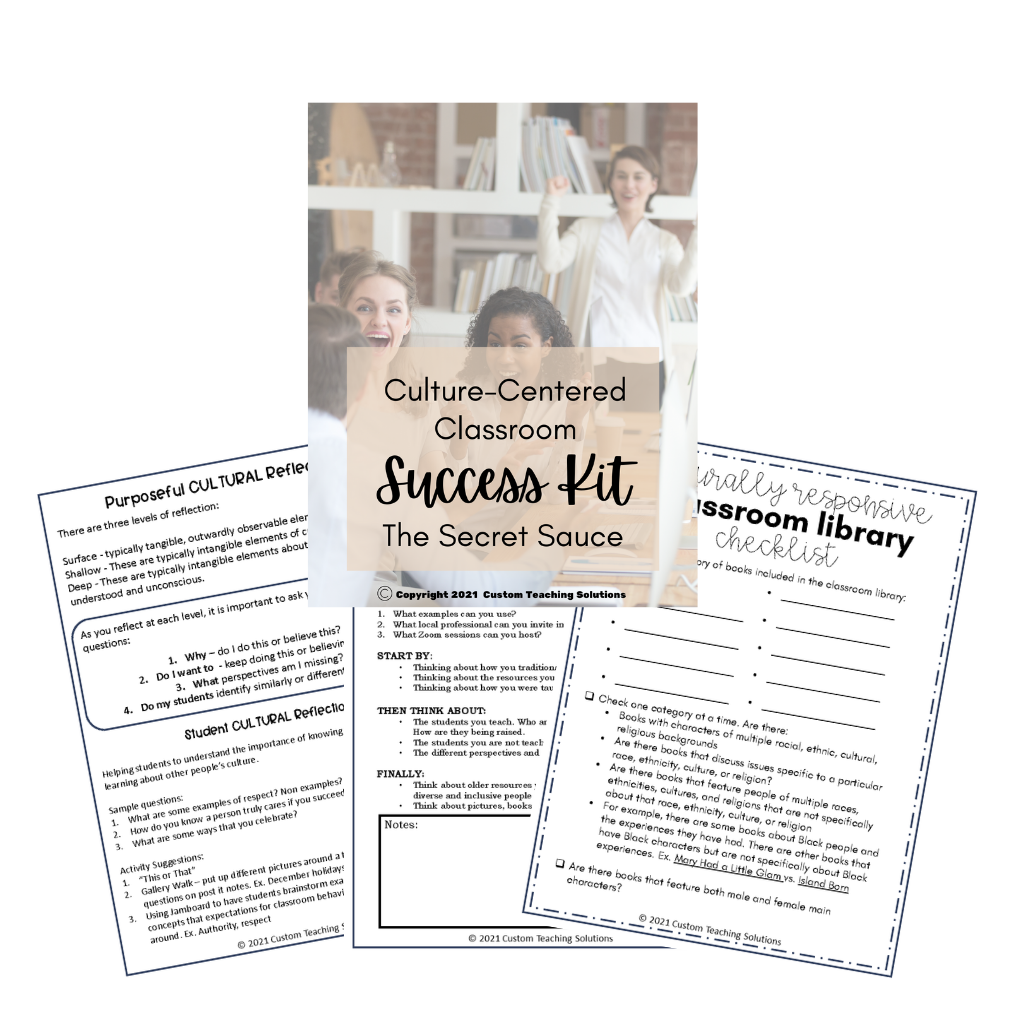
1 thought on “The Power of Having Your Students Choose Their One Word for the Year”
Pingback: What is Culture? How can it help unlock exciting and remarkable student Potential? - Custom Teaching Solutions